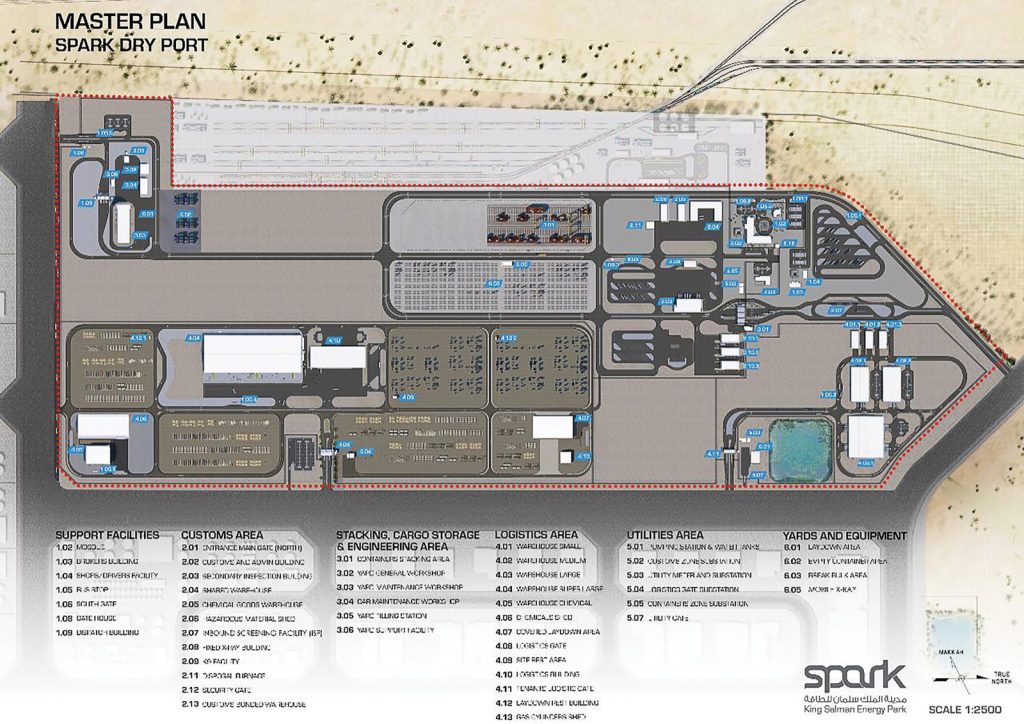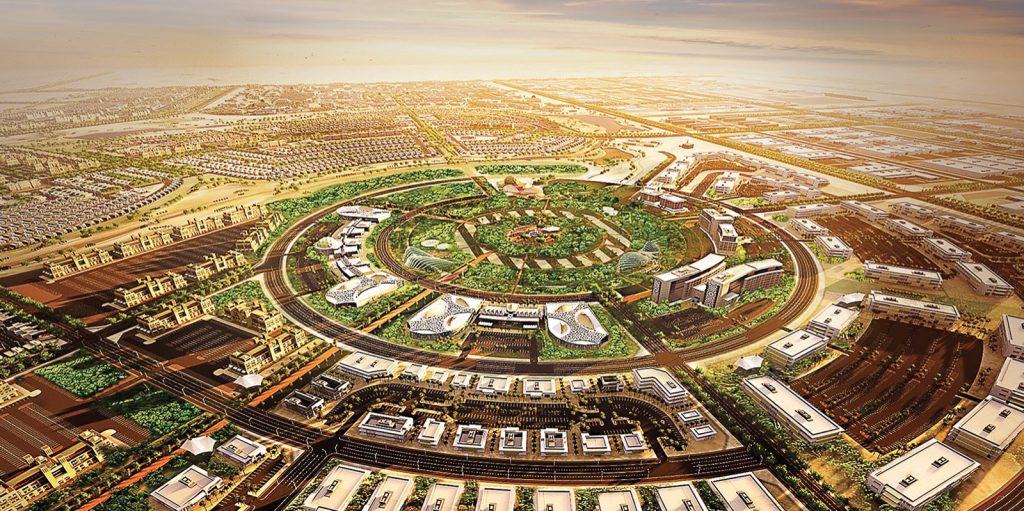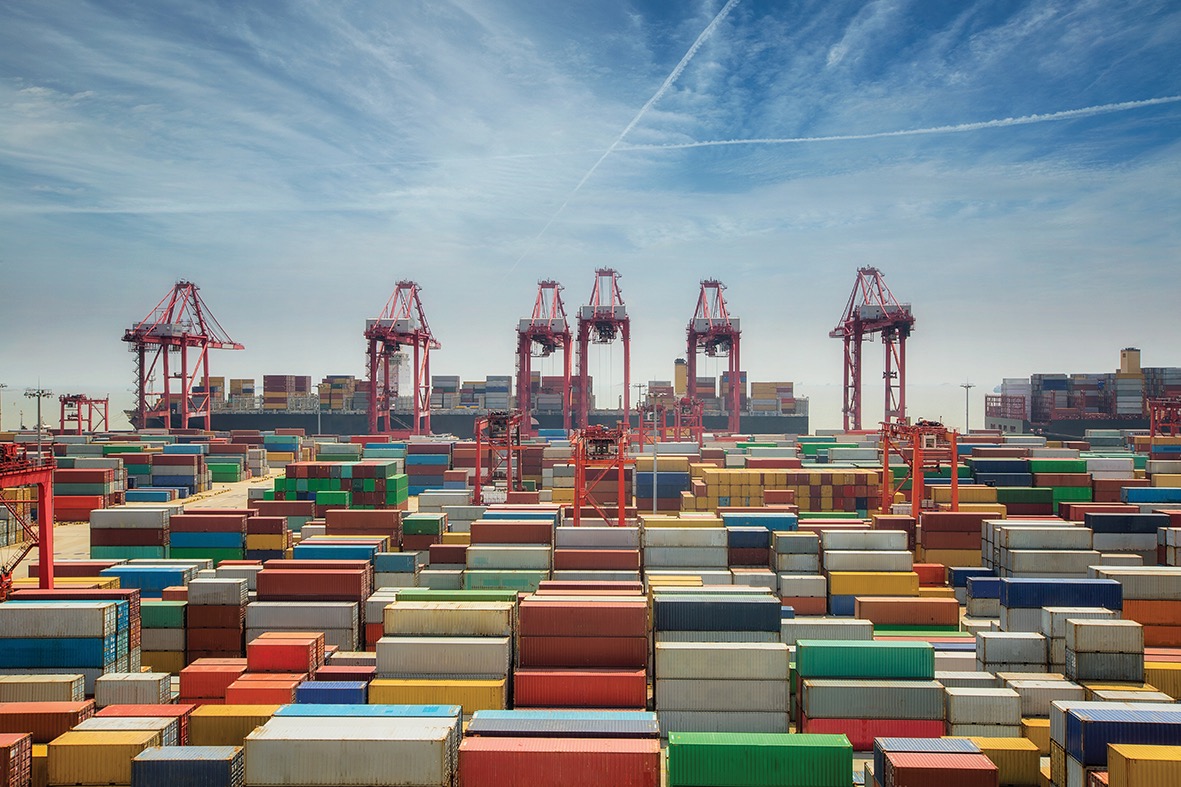Logistics News ME sat down with Saif Al-Qahtani, President and CEO of SPARK to understand how they will fuel the Kingdom’s economic diversification in the future…
In Saudi Arabia’s Eastern Province, a region renowned for its unrivalled oil and gas resources, the 50 square kilometre King Salman Energy Park (SPARK) is being developed as a premier industrial hub. As a Saudi megaproject, SPARK aims to support both the National Industrial Strategy and Saudi Vision 2030 by localising the multibillion-dollar energy value chain in the region and capturing the rising demand for energy-related products and services throughout the Middle East and beyond.
The Water & Electricity Regulatory Authority has granted SPARK Utilities, a wholly owned subsidiary of SPARK, a licence to sell and distribute power to tenants. SPARK Logistics, a joint venture between SPARK and Hutchison Ports, will manage a state-of-the-art, fully automated logistics zone over three square kilometres and the region’s first and largest dedicated private dry port.
Overview
To further localise the Kingdom’s energy supply chain, SPARK was founded. Most of the equipment needed to construct or maintain new facilities has been imported for decades by businesses involved in the Kingdom’s energy sector. More than 70% of purchased goods and services, worth 40 billion dollars annually, are to be localised, according to SPARK. Later, this vision was broadened to encompass other energy-related industries supporting regional goals, like the value chain for renewable energy sources.
SPARK is a fully integrated and master-planned city with top-notch infrastructure and services, providing the ideal investment environment for local and foreign businesses in the centre of one of the largest energy markets. It enables tenants to manage their businesses effectively while generating significant economic value for the Kingdom.

Its integrated supply chain and advantageous location allow tenants to export locally while giving tenants access to the region’s high and expanding demand for industrial goods and services supporting the energy industry.
Contributions Towards Saudi Arabia’s Vision 2030
SPARK is positioned as a critical player in advancing Saudi Arabia’s Vision 2030 by actively boosting the economy and increasing its revenue streams. When SPARK reaches full maturity, it’s anticipated that it will significantly increase the gross domestic product of the Kingdom by $6 billion annually.
Furthermore, SPARK adds significant socioeconomic value to the Kingdom while serving as a national megaproject and a cornerstone of the Vision 2030 initiative. By 2050, it is anticipated to contribute roughly $150 billion to the Kingdom’s GDP and, when fully developed, to create 100,000 jobs.
The main objective of SPARK is to localise the energy value chain, create tens of thousands of high-skilled jobs, stimulate the economy, and strengthen Saudi Arabia’s dominant position in the world energy market. These goals are perfectly in line with Vision 2030’s overarching objectives.
Logistics Zone at King Salman Energy Park
The Logistics Zone at SPARK, which is scheduled to open its doors in 2024, will serve as a regional entry point for the energy industry. State-of-the-art facilities will be present in the Logistics Zone, including the Middle East’s first and most prominent private dry port. To meet the needs of investors in the city, it will provide:
- on-site customs clearance services,
- bonded and re-export zones, and
- a variety of logistical services.
The King Salman Energy Park in the Eastern Province of Saudi Arabia, a region renowned for its oil and gas resources and high demand for energy goods and services, is where the Logistics Zone is located strategically. With plans to connect to neighbouring countries via the GCC rail, the Logistics Zone will be easily accessible from King Fahd International Airport, King Abdul-Aziz Seaport, and the GCC highway.
The Logistics Zone will be operated and maintained by SPARK Logistics, a joint venture between SPARK and Hutchison Ports, a major international port operator, to meet the city’s investors’ needs. SPARK Logistics will provide services related to various commodities. Once finished, the Logistics Zone will offer first-class logistics infrastructure and increased global reach, benefiting SPARK’s investors and nearby regional hubs, enabling effective movement of goods and services within the supply chain and fostering the seamless integration of various elements in the energy supply chain.
The Logistics Zone was established in line with the National Transport and Logistics Strategy’s master plan and aims to advance Vision 2030’s ambitions to transform the Kingdom into a global logistics hub and increase local manufacturing.
Initiatives Offered
SPARK, a fully integrated city and thriving neighbourhood, is at the centre of the energy demand. The town has several clusters, including the logistics zone, the industrial hub, the business district, the digital hub, and the residential and commercial areas.
It offers full-service offerings to investors via SPARK Utilities, a world-class utility subsidiary. With its plug-and-play design, which lowers costs and implantation risks, tenants can start immediately with ready-graded industrial lands. Additionally, it provides tenants access to electricity, gas, water, and wastewater, all controlled by a smart grid to save energy.
Another element is SPARK’s Logistics Zone, a state-of-the-art, fully automated district, which will be operational by 2024 and operated and maintained by SPARK Logistics, a joint venture established between SPARK and Hutchison Ports, the leading global ports operator.
When fully operational, the Zone can move up to ten million tonnes of cargo through fully automated Rubber Tyred Gantry Yard cranes (RTG) and gates and the latest dedicated non-invasive scanning equipment to expedite cargo clearance. A residential area will be included in SPARK’s fully integrated model, allowing residents to live, play, and attend school. At the same time, the commercial and industrial zones will support the establishment, operation, and growth of businesses in Saudi Arabia’s energy sector.





